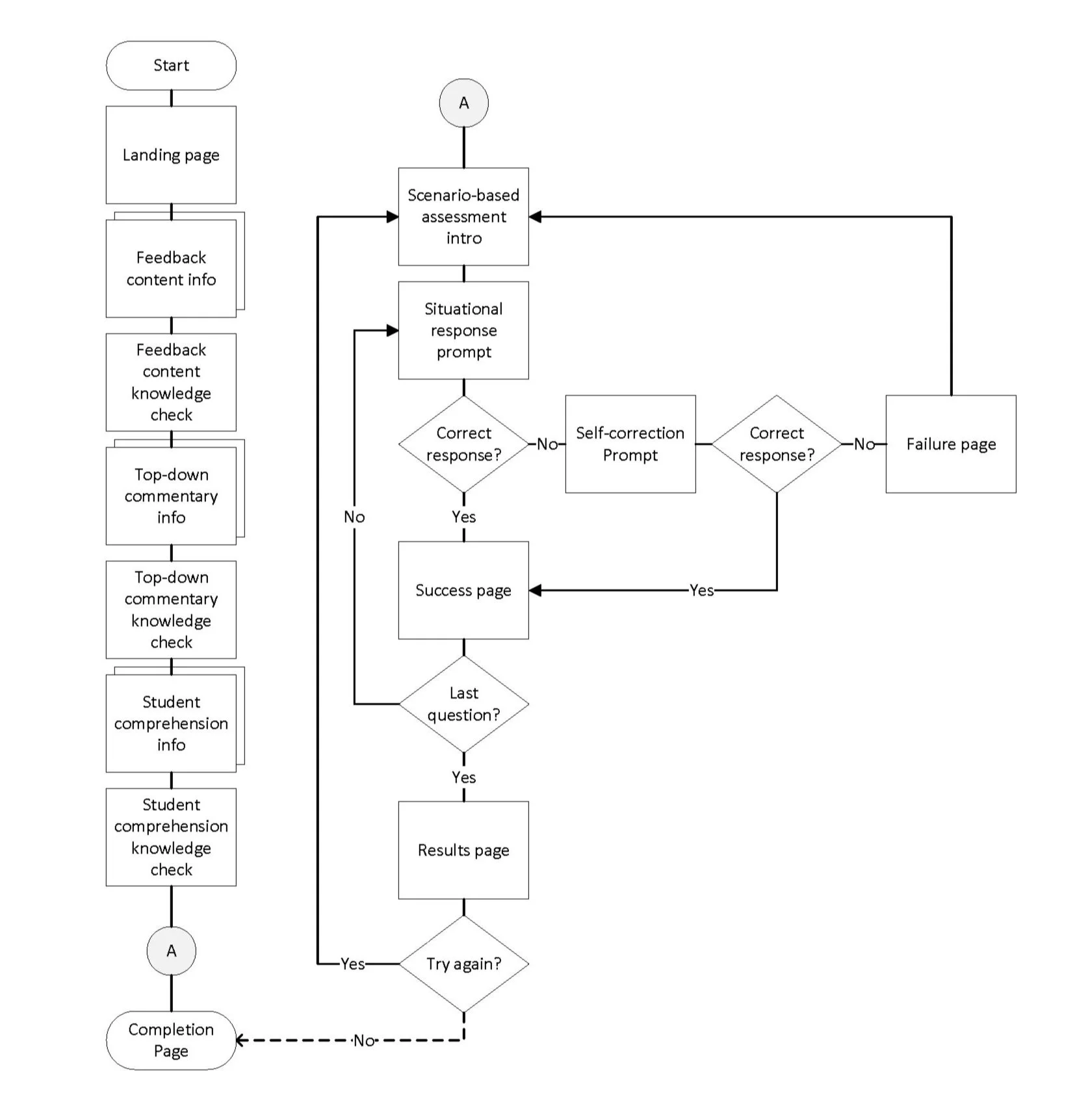I developed a SCORM-compliant reusable learning object to teach new essay coaches to apply the principles of effective essay feedback. This brief training module is designed to be part of a 6-hour training course for new essay coaches.
Audience: New and existing employees taking on the college essay coach role
Responsibilities: Instructional design; eLearning development; graphic design
Tools used: Articulate Storyline 360, Adobe Illustrator, Microsoft PowerPoint & Visio, Amazon Polly text-to-speech
Employee Training eLearning
Click above to try it out!
Problem
College application essay coaching is one of To The Top’s most crucial and popular services. However, To The Top currently employs only one college essay coach: me.
As To The Top grows, we will need more essay coaches. Whether these are new hires or existing employees with other roles, these new coaches will need to be trained in an efficient, effective, and consistent manner.
Solution
Anticipating the need for consistent training, I used Articulate Storyline to develop a SCORM-compliant reusable learning object to teach new essay coaches to apply the principles of effective essay feedback.
This brief training module is designed to be part of a 6-hour training course for new essay coaches. It includes three sections of informational slides and a branching scenario that mimics the essay coaching experience.
Process
Analysis
First, I conducted a detailed analysis of the overall instructional need and goals for the entire 6-hour training. This included:
Audience analysis
Context analysis
Learning objectives
eLearning Design
Then, I got to work designing the eLearning module. This stage included:
Additional analysis for the eLearning module
A module content outline
A module flowchart (below)
Screen layout mockups
A detailed storyboard of the module
eLearning Development
Finally, I developed the module in Articulate Storyline. I followed my storyboard, adapting the content as needed. I modified vector images and created the slide backgrounds in Illustrator.
To account for variation in learners’ existing knowledge and skills, I decided to allow learners to navigate freely through the informational slides or even bypass them entirely. However, to ensure that learners achieve the learning objectives, they must successfully complete the scenario before reaching the conclusion slide.
Condensing weeks of essay feedback and revision into a branching scenario allowed me to reveal the relationship between feedback, student motivation, and writing outcomes. However, to maintain some of the ambiguity coaches will encounter, making mistakes in the scenario first leads to an unannounced opportunity for self-correction. Doubling down on a mistake or attempting to self-correct with a different error leads the learner to a failure slide. The failures are significant but not catastrophic, much like in the real world.
Usability Testing
I adapted a usability test for my own needs. One of my peers completed the test, and I adapted my module in response to their feedback.
Universal Design
I attempted to achieve a professional aesthetic without compromising Universal Design principles. The module incorporates relatively large, high-contrast sans serif text on simple backgrounds. This gives it a modern look while remaining accessible to as many users as possible. The information is chunked visually using color, grouping, and formatting, as well as by using subtle entrance animations that are cued to the narration. I tested various text-to-speech options before deciding on Amazon Polly because of its clarity and realism.
To make the module accessible to people using screen readers, I reviewed each slide to ensure the correct focus order. I used images sparingly to enhance engagement and serve as memory cues. I tagged decorative shapes, such as rectangles used as layout elements, as ignorable by screen readers. Finally, I provided descriptive alternative text for all non-decorative shapes and images.
Results
To The Top is expanding, so I am eagerly anticipating the opportunity to implement and evaluate this module.


